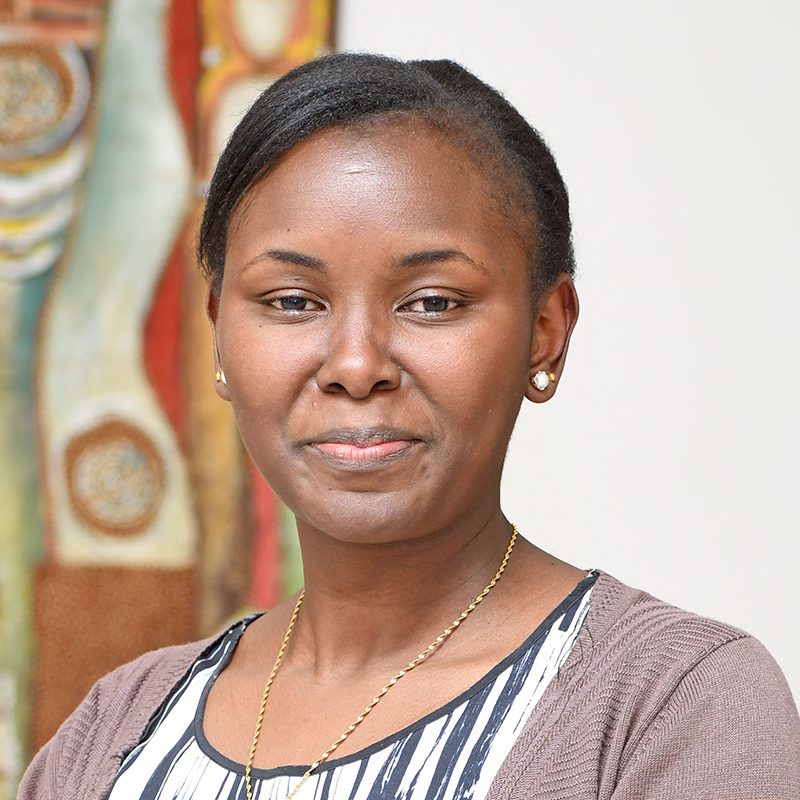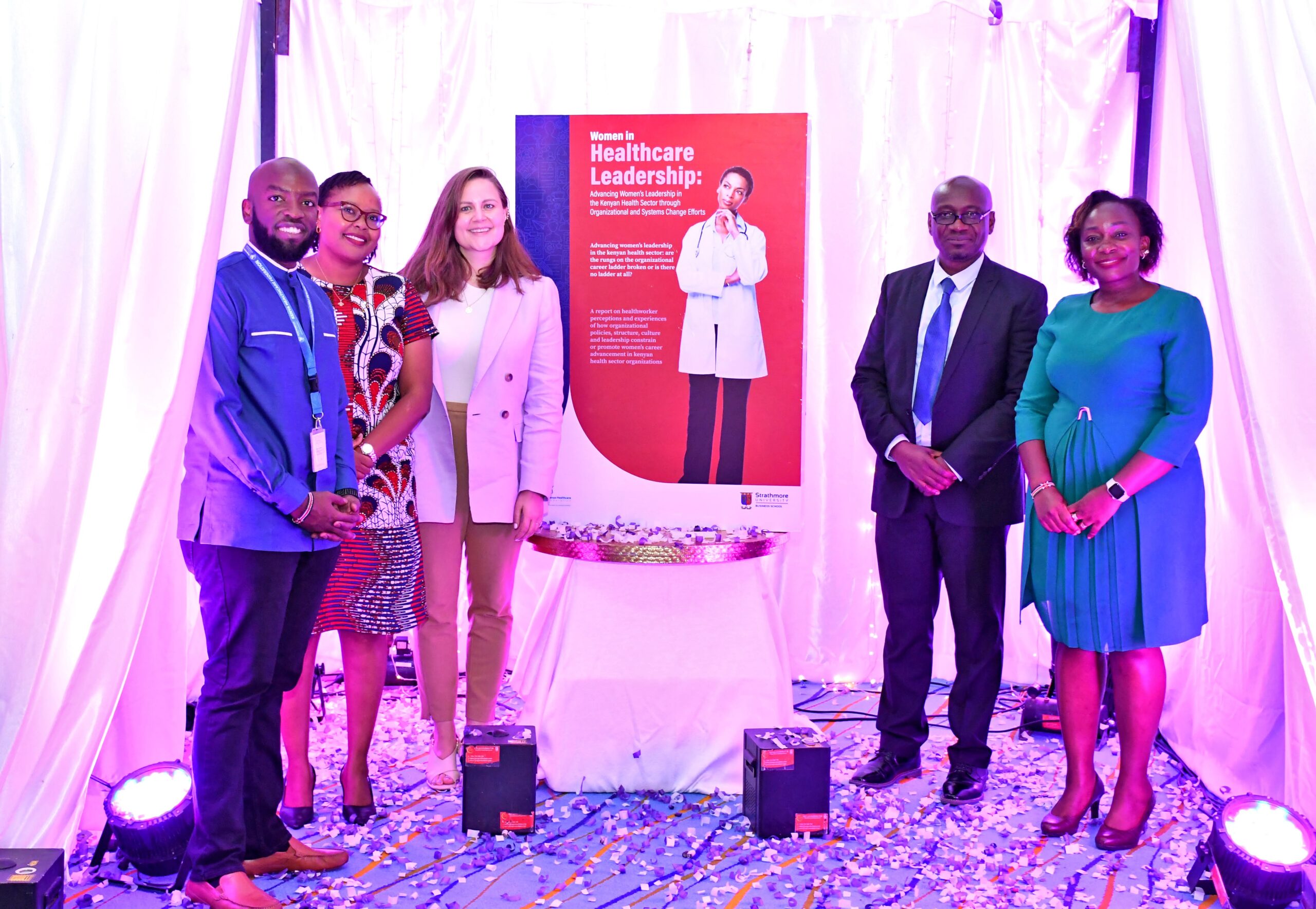On Friday, 8th March 2024, Strathmore University Business School (SBS) and the Kenya Healthcare Federation officially unveiled the finding of the Women in Health Leadership Report. The report, titled: Women in Health Leadership: Advancing Women’s Leadership in Organizational and Systems Change Efforts showcased the research findings from the ongoing Women in Health Leadership, Driving Country Level Change Project.
Over the past year, the project undertook a comprehensive survey involving 3,015 participants from 403 organizations. This extensive research shed light on the prevailing landscape of women’s leadership in Kenyan healthcare, unveiling critical insights and guiding principles for fostering inclusive and equitable environments.
The project’s findings underscored the urgent need for concerted action to empower women leaders and dismantle systemic barriers hindering their progress. Among the key recommendations put forth in the report are:
Cultivating Allyship and Advocacy. Organizations are encouraged to enlist the support of male colleagues in mentoring and sponsoring women leaders, advocating for inclusive policies, and actively challenging gender biases and stereotypes. By fostering a culture of allyship, organizations can create more inclusive and supportive environments conducive to women’s leadership.
Prioritizing Gender-Inclusive Leadership Development. Organizational structures should prioritize the establishment of gender-inclusive leadership development programs. These programs aim to nurture talent, foster mentorship relationships, and provide opportunities for skill-building and career advancement tailored to address the unique needs and challenges faced by women in healthcare leadership roles.
Promoting Transparency and Accountability. Organizational structures should promote transparency and accountability in recruitment and promotion processes to mitigate biases and ensure equitable opportunities for women in leadership positions. This entails implementing fair and unbiased evaluation criteria and practices.
Supporting Work-Life Balance. Organizational policies should accommodate the diverse needs of women in healthcare leadership roles by offering flexible work arrangements, parental leave policies, and other family-friendly benefits. Recognizing and supporting the work-life balance needs of women fosters a more inclusive and supportive environment conducive to their professional growth and well-being.
Fostering Inclusive Organizational Cultures. It is important to cultivate gender-inclusive organizational cultures that value and celebrate diversity at all levels of leadership. By fostering a culture of inclusivity and belonging, organizations can create environments where women feel valued, respected, and empowered to succeed.
Prioritizing Gender Diversity in Leadership Teams. Organizational leaderships and boards should prioritize the promotion of gender diversity in leadership teams to harness the full spectrum of talent and perspectives. Efforts should be made to ensure women’s representation at all levels of leadership, including executive and board positions, to reflect the diversity of the workforce and the communities served.
Investing in Cultural Sensitization and Awareness. Organizations should invest in cultural sensitization and awareness training to challenge gender stereotypes, promote inclusive attitudes, and foster a culture of respect and equality within healthcare institutions. Mandatory training programs for all employees and leaders should emphasize the importance of diversity, equity, and inclusion in organizational success.
Establishing Support Networks. There is a need for organizations to establish formalized networks and support groups for women in healthcare leadership roles. These networks provide opportunities for peer support, knowledge sharing, and professional networking, empowering women to navigate leadership challenges and build strategic alliances.
The Women in Health Leadership, Driving Country Level Change Project represents a pivotal step towards catalyzing change and advancing gender equality within the Kenyan healthcare sector. By embracing these recommendations and fostering inclusive environments, organizations can unlock the full potential of women leaders, driving positive transformation at the country level.
Article by Juliet Hinga
Share This Story, Choose Your Platform!
Your journey to business excellence starts here. Subscribe today and be at the forefront of innovation and leadership.












